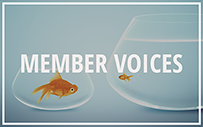
For many, success is shaped by external factors, but career services staff can help guide individuals to reflect on what success means to them through their own lens.

Despite the changes caused by COVID-19, some employers and educators have reinstituted traditional recruiting practices that may now present barriers to students impacted by the pandemic.

To foster a truly diverse and inclusive workplace, employers should expand their DEI efforts to encompass what is increasingly being referred to as DEIA—or diversity, equity, inclusion, and accessibility.

As October is National Disability Employment Awareness Month, several organization offer resources about disability inclusion for employers and career services offices to use now and throughout the year.

The Career & Professional Development office at the University of Denver developed a multipronged approach to work toward its ambitious goal to engage 90% of undergraduates annually.

At the University of Cincinnati, students facing financial constraints can access a grant designed to enable them to engage in career-focused courses.

It’s true: What a student learns from an internship is most important. However, how important is it for a potential employer to know that a student was offered an internship even though the position was rescinded due to COVID-19?

Can a current job also count as an internship? Several members of the NACE Community weigh in with their views.

Career services practitioners offer ideas for approaches that add form, function, or fun to helping students perfect their elevator pitches.

What advice would you offer to a student who wants to include religious information on his or her resume?

Students feel that their experiential education assignments have a positive impact on their career readiness competencies.

When it comes to rating the “career readiness” of college graduates, there are differences in perception between students and employers.

NACE research shows that disproportionalities exist in terms of race/ethnicity and representation by internship attainment and pay type.

NACE research shows that women are overrepresented among unpaid interns and underrepresented among paid interns.

First-generation college students are overrepresented among “never interns” and underrepresented among paid interns.

As they are reviewing college graduates’ resumes this year, employers are focused on finding evidence of candidates’ problem-solving skills and teamwork abilities.

Recently, members of the NACE Community shared resources that they find helpful when working with LGBT college students, job candidates, and employees.

Some career centers are noticing a decrease in employer and student registration for virtual career fairs. What strategies might increase the number of employers attending?

How do virtual internship programs compare with their pre-pandemic counterparts? NACE members share what they have heard from students about their virtual summer internship experiences.

Even though the job search environment has undergone substantial shifts over the last five years—accelerated more recently by the COVID-19 pandemic—core aspects are intact.

Volunteering can help students gain valuable experience and learn about what workplace environments best suit their needs, which will be helpful when applying for jobs after graduation.

Does salary matter to graduates from the college Class of 2021? No … and yes, according to students responding to NACE’s 2021 Student Survey.